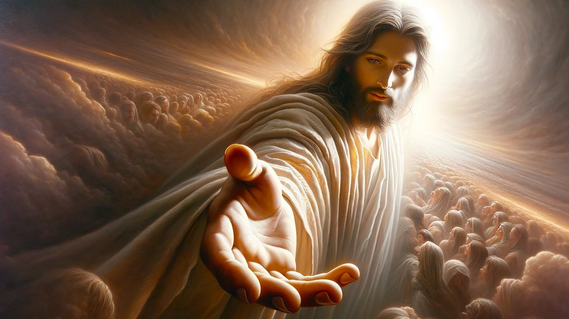God is angry. God punishes. God disciplines
It is important to remember that it is only our limited human experience and vocabulary which allows us to compose any description of God. Accordingly, any interaction with the divine ends up being described by the same human experience and human vocabulary. So God is angry. God punishes. God threatens. God disciplines.
Image by Karen .t
God is angry. God punishes. God disciplines
By Steve Hall
https://bible.usccb.org/bible/readings/120923.cfm
Isaiah 30:19-21, 23-26
Matthew 9:35 - 10:1, 5-8
In my experience people propose a lot of reasons (excuses?) for not believing in God. It’s not unusual to hear that the God they believe to be described in the Old Testament is the source and cause of their alienation. The images of fire and brimstone, along with judgment and condemnation, sin and disobedience, as well as rigidity and an insistence on perfection are but a few of the culprits they have somehow learned to associate with God. These images are probably drawn more from what they have heard or presumed than from what they have read. It is unfortunate, therefore, that today’s passage from Isaiah has not been among the texts they have heard.
“No more will you weep;
He [the Lord] will be gracious to you when you cry out,
as soon as he hears he will answer you.
The Lord will give you the bread you need
and the water for which you thirst.
He will give rain for the seed
that you sow in the ground,
And the wheat that the soil produces
will be rich and abundant.
On that day your flock will be given pasture
and the lamb will graze in spacious meadows. . . .”
Who can turn from such a God?
We all struggle when we attempt to describe God. But then why should detailed accuracy or completeness be within our reach? We have enough trouble being either accurate or complete when describing ourselves. It is important to remember that it is only our limited human experience and vocabulary which allows us to compose any description of God. Accordingly, any interaction with the divine ends up being described by the same human experience and human vocabulary. So God is angry. God punishes. God threatens. God disciplines.
It seems that the domain of faith-defined moral behavior is the one most difficult for mankind to commonly accept. Some of that difficulty is the perceived “grey” areas that we assume exist. Even determining the scope of the Ten Commandments has proven elusive. The Christian community still debates whether criminal execution is forbidden by the fifth commandment. For some, however, an acceptance of God is the more difficult because of the “rules” themselves or the conviction that the “rules” themselves are arbitrary. So, let’s be clear: there are no arbitrary moral laws! There is ambiguity in our understanding, similar in a way to our understanding of physical laws. Whose picture offers the best description? The Greek philosophers? Newton? Einstein? Quantum Mechanics? Etc, etc, etc. and how do we reconcile the apparent discrepancies between them.
Certain truths apply when we consider the origin of morality.
- God is good.
- All that God creates is Good.
- All created things must have parameters.
- Those parameters are such as to complement the nature of the created and glorify their creator.
The “rules” are not arbitrary. That is why the Psalmist will celebrate. “He declares his word to Jacob, his statutes and ordinances to Israel. He has not dealt thus with any other nation; they do not know his ordinances.Praise the LORD!” (Psalms 147:19-20)

